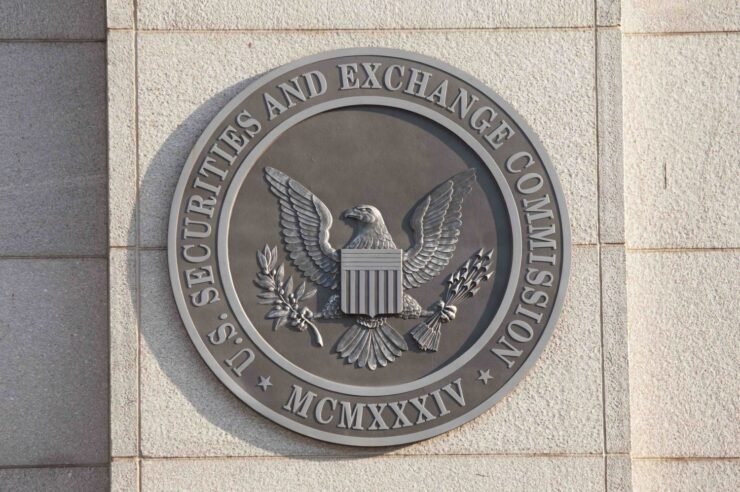
Back in 2017, I was the chief operations officer of an enterprise blockchain startup. By all accounts we were a reasonably successful early stage company; we had built prototypes on our permissioned Ethereum Virtual Machine for a range of banks including Deutsche Bank, Barclays and Credit Suisse. SWIFT built its first prototype blockchain system using our software. Few VCs were interested.
Often, in different meetings with different firms in different countries, all would ask the same question:
“So. Are you doing a token?”
My response was uniform. “Of course I’m not doing a f*!@&ng token, you brain-dead savages,” I would think, before politely responding something along the lines of “it is my considered opinion that the current practice of raising funds via direct sale to the public is a violation of securities law.” Not that anyone cared, whether they be shiny new VCs or the old and unexciting VCs already in my cap table. After closing a bridge round, my own VCs decided that, indeed, a token sale would be in the company’s future; I left the company to do other things (namely, re-qualify in the U.S.), and the company raised more money.
Preston Byrne, a CoinDesk columnist, is a partner in Anderson Kill’s Technology, Media and Distributed Systems Group. These opinions are not legal advice, and do not represent the position of his law firm, partners, past or present clients, or itinerant mobs of angry marmots.
In the end, the company didn’t wind up selling any tokens. But at least I got the satisfaction of being right about the whole don’t-sell-tokens-because-you-will-get-dinged-by-the-regulator thing well ahead of time. Back in the heady days of 2014, my friend and expert crypto historian Tim Swanson wrote this op-ed in CoinTelegraph, where he quaintly referred to ICO tokens as “cryptoequity,” per the lingo adopted by Joel Dietz and one of the earliest investment-projects-on-the-blockchain, a decentralized crowdfunding platform called “Swarm.”
Same again in 2017, when I cautioned that the new SAFT note structure – which divided a token issuance into two steps, one private sale and later one public distribution – meant “the SEC can’t nail a company for issuing a SAFT… but the yet-to-be-created tokens remain fair game,” which is exactly what happened when Judge Castel ruled, in Securities and Exchange Commission v. Telegram, Inc. that the tokens and the ostensibly legally-compliant “GRAM Purchase Agreements” pursuant to which they were sold constituted a single “scheme” for the purposes of the Securities Act, and therefore the private placement exemptions Telegram thought applied to its offering fell away.
In each of the great shitcoin booms of the past – 2014 and 2017 – there have been voices that cautioned crypto entrepreneurs to tread carefully and those who have told them to charge ahead. Of the 2014 vintage, only a handful of schemes, ones which were obviously fraudulent (e.g. PayCoin) wound up being prosecuted; the PayCoin case led to a multimillion dollar settlement with the SEC and jail time.
Others, like Ethereum, skated; not because they weren’t securities offerings when made, but, I suspect, and as Bill Hinman hinted, because the SEC viewed further action as being akin to closing the stable door after the horse had bolted.
There will be shitcoin apologists in the crypto-legal or crypto-legal-adjacent community, people without clients, who assuredly shout from the rooftops that ‘this time it’s different!’
The 2017 boom was met with a somewhat swifter, and broader, response. A number of small schemes like Paragon and Airfox, and DEXs like EtherDelta, were initially targeted in late-2018, with bigger fish like EOS fined in 2019. The picture was confused considerably when Director Bill Hinman made his speech When Howey Met Gary (Plastic) in June 2018 that seemed to imply that functional decentralized networks would be exempt – a view that was later invoked by Kik in defense to the SEC action brought against it nearly a year later, apparently without success. That enforcement wave continues: only this week, Unikrn was ordered to pay a $6 million penalty and shut down its coin, and numerous other coin issuers from 2017 are doubtless still within the SEC’s crosshairs or negotiating their settlements.
Now, again, in 2020, a new generation of entrepreneurs believes it has found the proverbial Philosopher’s Stone that will turn shitcoin lead into gold. Members of the “crypto bar” warn the community not to trust lawyers who dare to suggest that this new brand of shitcoin is categorically out of bounds. Crypto-Twitter is abuzz with the usual questions about whether flogging coins for fun and profit that allow voting rights on a DEX is or is not a security.
Whether this is the case will, as with all things, depend on the facts as they fit within the three-prong test from SEC v. W.J. Howey and the precedent that follows it. However, generalizing greatly, more often than not, a coin that airdrops or is pre-sold in vast quantities to American citizens is going to attract attention from American regulators and, as encountered in the wild, is likely to satisfy the Howey prongs.
See also: Redel/Andoni – DeFi Is Just Like the ICO Boom and Regulators Are Circling
As this boom expands, there will be shitcoin apologists in the crypto-legal or crypto-legal-adjacent community, people without clients, who assuredly shout from the rooftops that ‘this time it’s different!’ in long Twitter threads optimized for engagement. Other cheerleaders will say that entrepreneurs are leaving money on the table by not doing a Uniswap-style airdrop to the American public, and what a loser you are if you steer clear! Enjoy staying poor!
The facts are these: not all tokens are securities; this we know from the release of several no-action letters to that effect. But as a practical matter, many, if not most, of them will be. No mental gymnastics, no think-pieces, no cryptographic magic dust, no novel naming conventions, and no “gotchas!” can work around the fact that courts work with economic reality, and economic reality on this most recent DEX token airdrop looks a lot like an investment contract.
It is also true that there are, without a doubt, countries in the world that do countenance token offerings. Go there. U.S. securities laws are not meant to restrict the sale of tokens in those places. In the wake of the Telegram case, however, there can be no doubt – none whatsoever – that there are serious restrictions on engaging in token sale activity in the U.S., which includes airdrops, and which also include airdrops relating to decentralized exchanges or DEXs.
See also: Preston Byrne – Telegram’s TON Was Built on Sand. Its Failure Isn’t All Bad For Crypto
Many of us would prefer this not be the case. I count myself among them. A liberal token offering regime in the U.S. would create much more legal work for cryptocurrency-literate transactional lawyers. That this is the case may result in American startups having less adoption and less access to capital.
This notwithstanding, it is the case, and if you want to avoid spending years in litigation with the federal government, I suggest approaching this market with a cool head and not giving into the temptation – or pressure – to “do something” to maximize your exploitation of it.
The SEC may not move today, nor tomorrow, nor even a year from now in relation to any particular issuance. Nor is there a requirement that cash change hands for the issuance to be deemed a sale. The SEC’s guidance has cautioned that so-called “air drops” can fall within this rubric. Consideration is not just money – it can be work, effort, and the attendant increase in value that arises from it.
The SEC’s slowness – the fact that they’ve done nothing about Uniswap right now – is not a waiver of its enforcement powers, and being on the receiving end of one of their subpoenas is no less painful simply because they waited a few years to hit you with it.



Comments (No)